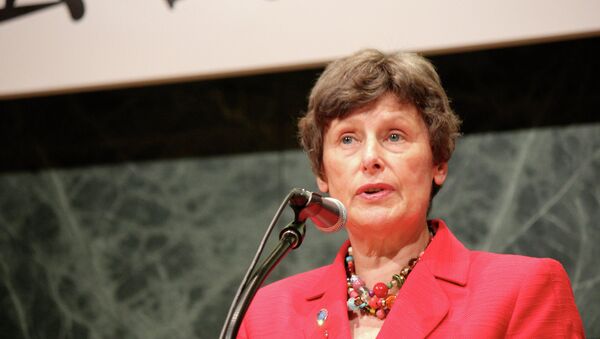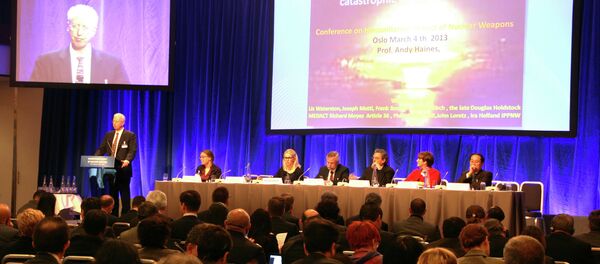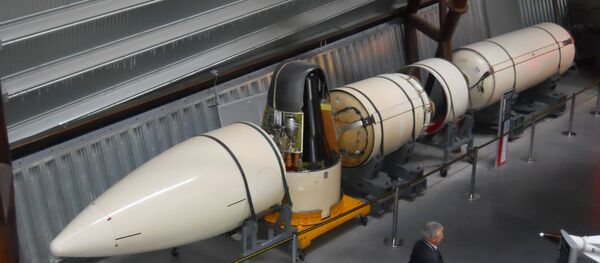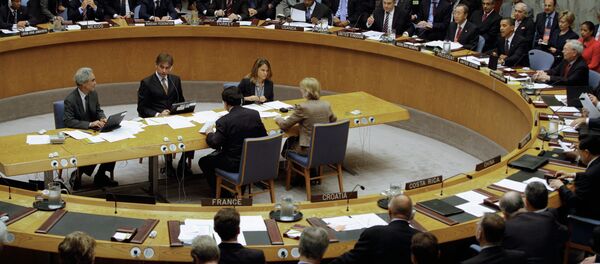"We must state very clearly that the nuclear powers continue to say that nuclear weapons are part of their military doctrines, there has been no claim that this has changed and that means that they are maintaining their nuclear weapons," Kane told the press on the sidelines of the Vienna Conference on the Humanitarian Impact of Nuclear Weapons.
The UN official said P5 countries "could be doing more" to eliminate nuclear weapons and thus the risk of their use.
All five nuclear powers are signatories to the Non-Proliferation Treaty, which has a final goal of achieving complete nuclear and general disarmament.
So far, the treaty is nowhere near its ultimate objective. Far from that, over the past decades India, Pakistan and North Korea have openly tested their nuclear weapons, while Israel is widely suspected to have a nuclear arsenal.
Russia-US Cooperation Decreased, Not Ceased
Cooperation between the United States and Russia has not ceased, though ties are not as strong as before, UN High Representative for Disarmament Angela Kane told Sputnik news agency Monday.
The Vienna Conference on the Humanitarian Impact of Nuclear Weapons, known as the conference on NPT, kicked off Monday in the Austrian capital of Vienna.
Russia and the United States both have nuclear weapons and are members of the P5 nuclear club of UN Security Council permanent members. According to Kane, the two nations own the main share of the world's overall nuclear arsenal.
Moscow and Washington have been at odds following the coup in Ukraine and Crimea's subsequent reunification with Russia. The United States has placed the blame for the instability in Ukraine on Russia, claiming it has been sending weapons and troops to its neighbor’s turbulent southeastern region.
Speaking about the souring of relations between the two, UN's Kane said their cooperation was "maybe not as frequent as it was before, but it never ceased, and that is a very good sign and I hope it will increase."
She added that cooperation is omnipotent, particularly at the moment of crisis, when it is unacceptable to back away from talking and cooperating. This echoed the opinion voiced earlier on Monday by the Russian deputy foreign minister who said Washington would never be able to solve international issues without Moscow's help.




